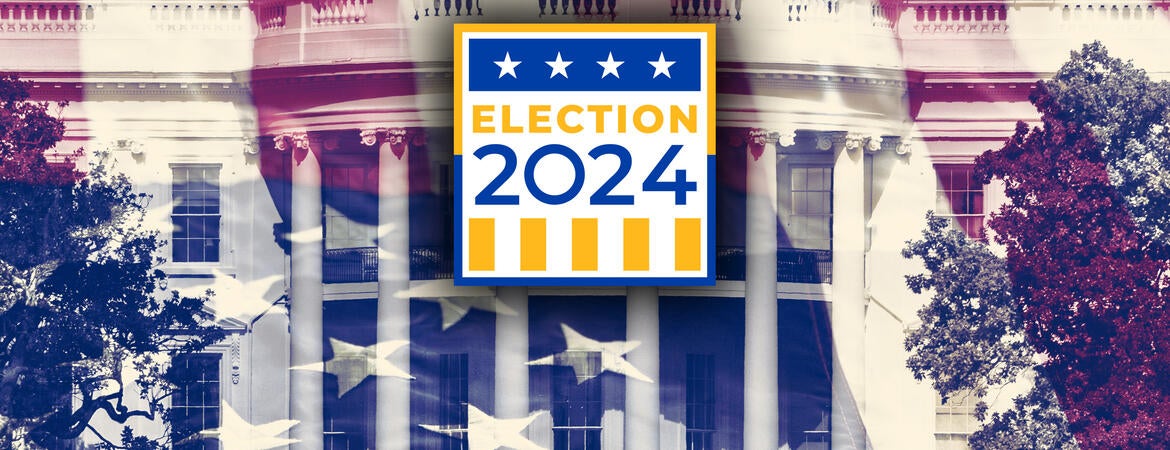
Recent elections in France and the United Kingdom held some surprises and — political scientists say — some lessons for the political parties in the U.S. UK voters ousted the Conservative party in favor of center-left Labour, and French voters, apparently spooked by their initial steps toward the right, voted overwhelmingly against the far-right National Party. Polls had predicted the right would win. Some analysis of the elections concluded there is a winning trend worth noting, in particular for the American Democratic Party: To swing voters left, you must sacrifice some platforms — and some candidates. We asked UC Riverside political scientists whether they see lessons from the left-prevailing elections in France and the UK. Weighing in are political scientist Shaun Bowler, emeritus political science professor Max Neiman, and polling expert Andrew Crosby.
Q: Should the notion of sacrificing candidates to win more broadly ring true for American political parties? Is President Biden the sacrifice Democrats must make in order to win?
Bowler: If it is indeed the case that — as Biden himself says — a Trump win is going to be bad for democracy in the U.S. — then the question of who is best able to defeat Trump is a serious one to ask. Biden seems to have answered that question with “me.” Of course he did. Like all political leaders, Biden will exist in a bubble. We see this in Trump as well. They are surrounded by people who only tell them what they want to hear. But as you can see a lot of people outside that bubble are unpersuaded.
Neiman: In France and the UK, the role of political parties as organizations is far more critical than in the U.S. So the parties can act in more concerted and organized ways. Party members in the UK are also able to dump quickly their party leader. I imagine if for whatever reason a party leader was seen as a serious election liability, the party would dump her or him. Remember Liz Truss? She served as UK prime minister for 45 days after Boris Johnson resigned, because she was dumped by her party.
Our system makes things much dicier should a presidential candidate be suddenly in deep political trouble AFTER the primaries. The process is much more diffuse and sloppy, even in the case where a candidate dies or becomes incapacitated. If things don’t settle down before the Democratic Convention, there are many opportunities for a lot of chaos to happen if Biden’s polling numbers are clearly dismal and he hasn’t obviated the still-worsening disquiet about his candidacy.
Q: The left triumphed in French and UK elections due to coalition-building. Does our two-party system make similar tactical strategies impossible?
Neiman: There are no formal arrangements that Democrats can make, with or without Biden at the head of the ticket, with other “parties.” The “No Labels” people are refusing to take a position, so far, on the national ticket. And, of course, the leaders of the RFK, Jr. campaign or the Green Party aren’t very helpful in this either.
It is likely true that the largest group of voters is a combination of “Never Trump” or a “Not Trump” or “I’m not voting for either guy,” plus the Biden voters. If Biden or Democrats want to beat Trump, they’ve got to maximize the pool of non-Trump voters. Getting them sufficiently alarmed about a second Trump Administration to motivate them to the polls and vote for Biden is the tough task Democrats have. And there are no institutional levers available in the way anti-far right leaders in the UK or Britain have.
Bowler: (In the past) squabbling between left (European) parties split the vote and enabled the extreme right to win power. In France this last election, it was political leaders who coordinated. In the UK, it was more that voters did so via “tactical voting."
Q: Polls overwhelmingly predicted a far-right win in France. What went wrong?
Crosby: My initial take on this is that the polls actually got the results quite right for what they were designed to do. National Rally (NR) did in fact perform extremely well in the first round of voting (on June 30), and that was what most polls were designed to predict. What we then saw after the first round results was that a large number of candidates — literally in the hundreds — removed themselves from races to increase the chances that National Rally would not win in the second round. A good explanation of this reshuffling of the race is here.
Most of the original polls were not designed to predict the new (and revised) second round race. We had an extremely limited number of polls that specifically examined the second round. The second round results underscore the need to have timely polls designed to measure the race as it stands as close to the election as possible. In fairness, the French system also makes accurate polling for the second round more difficult since the deadline to drop out of the race was less than a week before second-round voting.
Q: In two-step/runoff/ranked-choice voting systems such as in France and the UK, voters rank candidates in order of preference (first choice, second choice, third choice, etc.) instead of choosing only one candidate, then there are runoffs until a majority winner emerges. What is the advantage of such voting systems for political parties?
Neiman: The two-step process in France allows the left and center parties to consider the results of the first stage and act accordingly. The prospect of a far right victory looming close-by after the first stage no doubt frightened the hell out of folks and there was time for them to use the institutional features in France to organize against the far right. And because the party structure in UK is strong, they could get members to strategically drop from the ticket in ways to maximize the success of the left (Labour) in the UK.
Bowler: We don’t have a runoff system like France where the first round gives everyone a lot of information about who should step down. Those options aren’t open to the U.S. left. (The U.S. has) polls. These are generally pretty good, but they are not election results. Polling results can be spun and interpreted about what might happen. (Runoff) election results are what actually happens.



